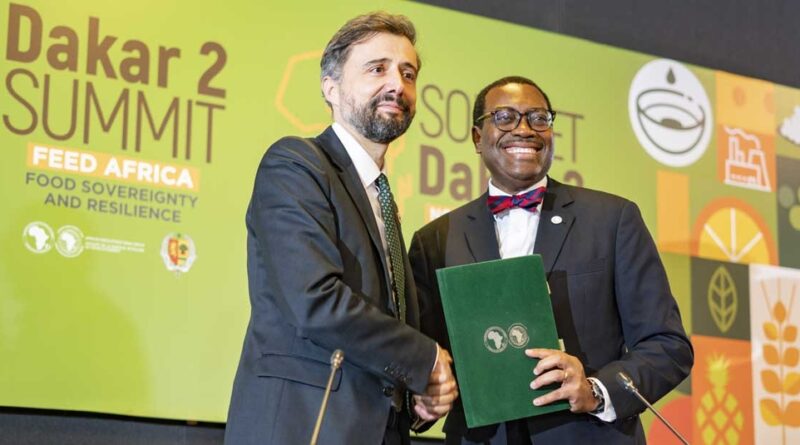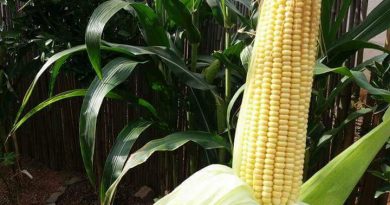“Mission 1 for 200” to double African farmers’ production
The African Development Bank Group and the International Fund for Agricultural Development (IFAD) are teaming up to help 40 million African farmers through a new initiative that will double productivity and produce 100 million metric tons of food for 200 million people.
Both organisations agreed to launch the initiative, named Mission 1 for 200, during the Africa Food Summit in Dakar, taking place this week. They aim to increase funding to the agriculture and food sectors.
Mission 1 for 200 will build resilience by helping food systems and farmers adapt to climate change and reducing agriculture’s environmental impact and emissions. It will double agricultural productivity through the use of state-of-the-art, climate-smart technology and advice. Additionally, the initiative will work to bring greater investment to fragile regions that are disproportionately impacted by climate change and often deemed “too risky”.
To achieve these goals, Mission 1 for 200 will leverage the private sector, de-risk and unlock more private investment to promote enhanced and climate adapted production as well as value-addition. The initiative will also work to build the enabling and policy environment for food systems and provide delivery models that analyse supply chain structures for providing services that improve the productivity and profitability of smallholder farmers.
African Development Bank Group president Dr Akinwumi Adesina and IFAD president Dr Alvaro Lario signed a letter of intent cementing their partnership on the sidelines of Africa Food Summit on ‘Food Sovereignty and Resilience’. The summit, which started on Wednesday and concludes on Friday, is co-hosted by the Government of Senegal and the African Development Bank. Bringing together African heads of state, ministers of agriculture, ministers of finance, central bank governors, private sector operators, farmer organisations and development partners, the summit is mobilising high-level political will and financial resources for food and agriculture delivery compacts.
President Adesina said right from the start the summit had seen a strong commitment to addressing the need for additional funding in the agriculture sector of African countries. Adesina said Mission 1 for 200 would provide a strong support and financing mechanism for African governments. “This landmark initiative will foster innovative agricultural ventures to boost food production, enhance efficiency within a framework of enhanced market dynamics and sustainable food systems, spur policy changes, and tap into co-financing opportunities through collaboration with other development partners, drawing on the expertise of both institutions,” Adesina said.
IFAD president Lario said only investments in agriculture that supported small-scale farmers would get Africa out of a “worrying downward spiral of crisis after crisis”. “Strategic investments will boost agricultural productivity, they will build food sovereignty and they will pave the way for a more equitable distribution and access to food, bringing opportunities for all,” Lario said. By leveraging the investments by both IFAD and the African Development Bank Group, Mission 1 for 200 will mobilise additional financing from innovative and non-traditional donor sources as well as private sector investors. The initiative will build on the momentum around climate adaptation and mitigation to approach green funds and climate funds as a long-term supportive solution.
Mission 1 for 200 welcomes the participation and contribution of other development partners.



